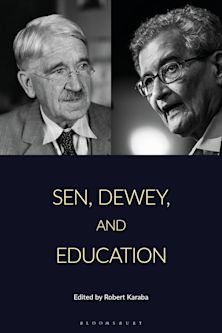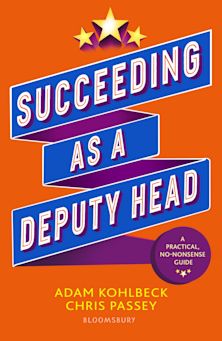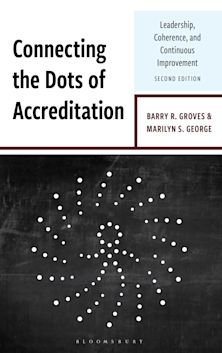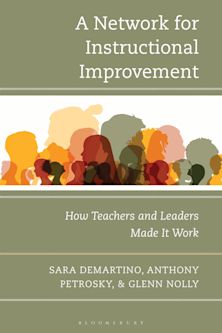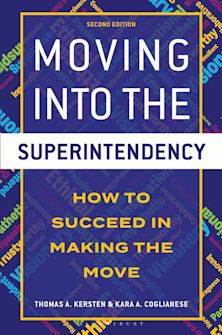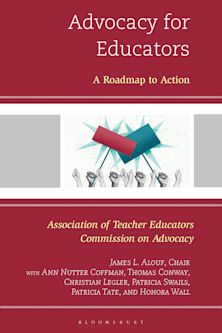- Home
- ACADEMIC
- Education
- Leadership and Management
- Transforming Professional Practice
Transforming Professional Practice
A Framework for Effective Leadership
Transforming Professional Practice
A Framework for Effective Leadership
You must sign in to add this item to your wishlist. Please sign in or create an account
Description
Educational accountability for excellence begins with educational leaders. In the past decade states have adopted revised requirements for school and district leaders in K-12 public schools with reliance on national standards like ELCC and ISLLC leadership standards. The development of Common Core State Standards (CCSS), No Child Left Behind (NCLB), and Race to the Top have also had profound changes on school curriculum, instruction, assessment and district leadership, evaluation, and accountability.
While there are many and varying leadership books on the market, few to none outline an effective framework of educational leadership domains needed to address the current needs of administrator evaluation, self-reflection, and personal growth.
Table of Contents
Acknowledgements
Foreword
Introduction
Chapter One: Setting the Stage for a Leadership Framework
Chapter Two: The Framework for Effective Leadership: Domains 2 and 3
Chapter Three: The Framework for Effective Leadership: Domains 1 and 4
Chapter Four: Examination of Effective Leadership
Chapter Five: Connecting Theory, Standards and The Leadership Framework
Chapter Six: The Diverse Roles of Leadership
Chapter Seven: Professional Learning for Growth
Chapter Eight: Using The Leadership Framework in Supervision and Evaluation
Appendix A:
The Leadership Framework Domain 1- Leadership Competencies
The Leadership Framework Domain 2- Professional Learning and Growth Practices
The Leadership Framework Domain 3- Instructional Practices
The Leadership Framework Domain 4- Management Competencies
Appendix B:
Sample Professional Learning and Growth Plan Tools
About the Authors
Index
Product details
| Published | 06 Apr 2016 |
|---|---|
| Format | Ebook (Epub & Mobi) |
| Edition | 1st |
| Extent | 228 |
| ISBN | 9781475822397 |
| Imprint | Rowman & Littlefield |
| Publisher | Bloomsbury Publishing |
About the contributors
Reviews
-
In many school districts the best method for evaluating educational leaders begins with self-assessment and reflection. Effective leaders develop methods to continually improve and evaluate practice and the authors of this book have done an excellent job creating an easy to use framework for what effective leadership should look like. The text can be a useful tool for those studying educational leadership or those experienced leaders looking for self-evaluation, goal setting, and improving practice. The layout of the book includes chapter objectives aligned with the standards that guide evaluation of leadership, giving practitioners a valuable resource to use. Reading this book, I found inspiration to embrace the process of professional growth and a better understanding of what I need to do to be an effective school leader.
Michael Glover, principal McHenry Middle School, McHenry, IL
-
In this book, the authors provide a wonderful balance of theory and practice useful to initial education leaders, as well as those who are well seasoned. Had I had a book like this when I was a superintendent and principal, I would have used it as a reference and guide to assist in the development of my colleagues and administrative team. The authors are experienced educational leaders, researchers and authors who bring all of that talent to bear in the provision of this wonderful reference. I recommend it without reservation.
Thomas P. Jandris, PhD, senior vice president for innovation, dean, College of Graduate & Innovative Programs, Concordia University Chicago
-
Not only does Transforming Professional Practice fill a gap in the present collection of resources for supervising and evaluating administrators, but it includes dimensions that may not be emphasized enough because they are considered too challenging to consider including trust, respect, and reflection. The group finding this book of greatest value may be board members who annually review one or more central office administrators as part of their duties. The obligations of administrators are many and varied, and the framework provides a multi-dimensional view of roles, responsibilities, and dispositions that contribute to making a school or district strong, effective, and a reflection of the community.
Barbara J. Phillips, Former principal and central office administrator, professor, Department of Leadership, Concordia University Chicago
-
In this era where many times legislative leaders are implementing laws regarding school leadership based on non-researched ideas and emotional outbursts from influential citizens, it is refreshing to see the development of effective leadership components presented in understandable language that is backed up by research. This is exactly what takes place in the text of Transforming Professional Practice: A Framework for Effective Leadership. It is essential for all leaders to understand and recognize the importance of professional learning and growth as major influences in improving leader effectiveness, and the different yet inter-related processes between evaluation and supervision. This book provides this knowledge and much more.
Jim Rosborg, president, Illinois Council of Professors in Education Administration (ICPEA), director of Master's in Education, McKendree University
-
The authors have combined their passion and expertise to create a roadmap for effective leadership. The tangible examples support understanding the critical components to successful leadership. The focus on professional traits and competencies evident in successful and effective leaders are relevant to every leader. I highly recommend every principal and superintendent read this book as it is designed to strengthen the leadership skills in every individual.
Amy Alzina, principal, Adams Elementary School, Santa Barbara Unified School District
-
The authors of this book address a critical gap in the current practice of educational leadership. Their unique leadership framework transforms the act of evaluating administrators into a much more robust process that focuses on continuous improvement and ongoing professional learning. As a principal over the last ten years, I have struggled to find a sound approach to developing the leadership capacity of administrators and school leaders. This book captures the essence of leadership development, and is a much needed resource in the field of education. I highly recommend it as a valuable resource for school reform.
John A. Becchio, principal, Santa Barbara High School, Santa Barbara, CA















